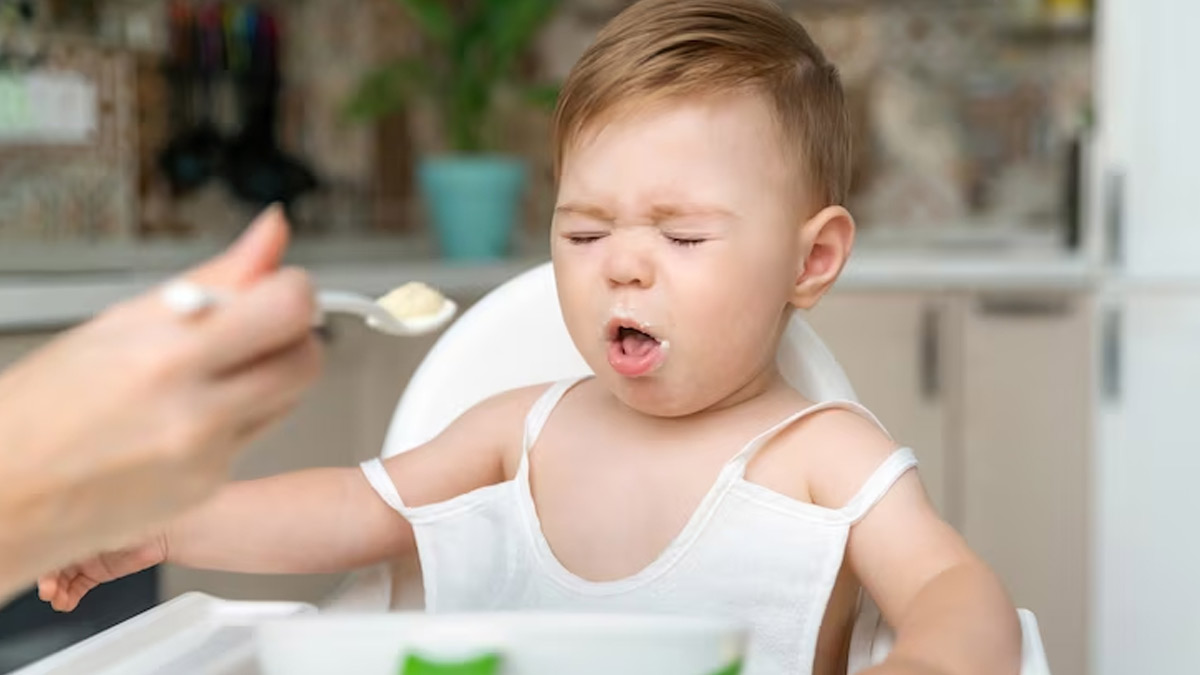
Breast milk is the best source of nutrition for all babies up to 6 months. Introducing solid foods to infants can be a huge milestone for most parents. However, regardless of whether your child is on liquids or solids, it is important to monitor their body’s responses to any new foods. Many children are prone to food allergies, an abnormal bodybodily reactions to a certain food. Speaking with the OnlyMyHealth editorial team, Dr Ashish Sahdev, Head Marketing - Medico and PMT, Metropolis Healthcare Ltd, discusses the most common food allergies in babies and what parents can do to prevent them.
Also Read: Worried About Newborn Catching Infections? Here're 8 Tips To Strengthen the Immunity
What Is A Food Allergy?

Food allergy occurs when your body's immune system has a negative reaction to a certain food you ate. Anyone is prone to allergies and therefore, must recognize their triggers. Reportedly, an estimated 8% of children under age 5 and up to 4% of adults have food allergies. Sometimes, food allergies can be confused with food intolerance. The difference lies in the involvement of the immune system.
Foods That Trigger Allergies In Babies
Dr Sahdev says, “Food allergies in kids start when parents start the process of weaning.” Weaning is when parents switch an infant's diet from breast milk to other foods. Common symptoms include eczema-rashes on skin, runny nose, sneezing-rhinitis, and abdominal symptoms like cramps, diarrhoea. Food allergens can also lead to wheezing and shortness of breath and can also trigger asthma in children, says Dr Sahdev.
According to the doctor, the most common food allergens are:
- Cow milk
- Egg
- Wheat
- Soyabean
- Peanut
- Fish and shrimps
The doctor also shares the result of a survey conducted by Metropolis Healthcare Ltd. As per the data, the other common allergens in India are cheese, lentils, coconut, corn, and mutton.
Also Read: New Born In The House? Expert Lists Dos And Don'ts For New Parents
Ways To Manage Food Allergies In Babies

Food allergies can be hard to detect in kids. The process is quite complex, according to Dr Sahdev. He says, “Molecular diagnosis of allergies is very important where the exact molecular protein causing the allergy has special importance. For example, in the case of milk-allergy to casein, the chief protein in milk and the essential ingredient of cheese, has significance. People who have an allergy to casein protein are less likely to outgrow their allergy over time.”
Once diagnosed, doctors are likely to stop the intake of causative food items of the allergy and may introduce the foods slowly in small amounts.
Parents should understand that food allergies can hamper the quality of life in your babies. It can lead to complications like failure to thrive or decrease in school performance. If your baby is suffering from allergic symptoms, consult a paediatrician and ask about various allergic tests available in the market, advises Dr Sahdev. A simple blood test can diagnose the sensitization of different kinds of allergens, he adds.
Takeaway
Food allergies can be tricky to diagnose. At times, even if you have no symptoms, a test may say ‘allergic’ to a food, according to the American College Of Allergy, Asthma and Immunology (ACAAI). While there are no medications to prevent food allergies, as parents, you can identify the food triggers and avoid feeding them to your child. In addition, breastfeeding women should also avoid foods that cause allergic reactions in babies. All of these measures can regulate food allergies in kids.







